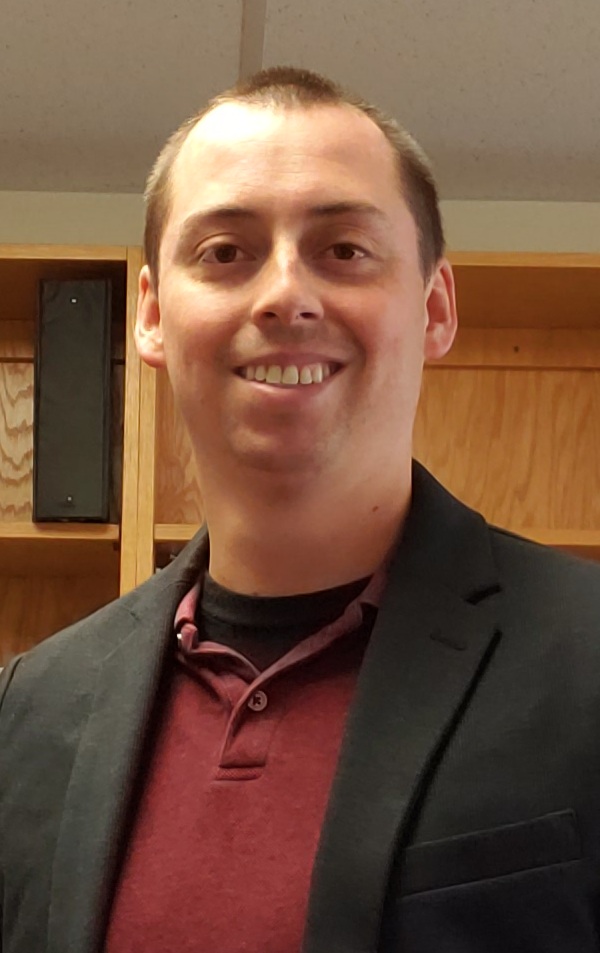Stories Behind the Science: Unexpected Opportunities
March 23, 2021

Note: This story is one in a series of stories written by student Makenzie Kohler highlighting student scientists at Idaho State.
Idaho State University clinical psychology doctoral candidate Luis Rodriguez will defend his dissertation this month. It’s another huge step in an academic journey filled with success. Rodriguez is the first person in his family to obtain a college education and graduated with not one, but two bachelor's degrees in psychology and music.
Rodriguez’s interest in science sparked at an early age when he would watch the Discovery Channel with his father. This led to Rodriguez attending ISU with the intention of pursuing a medical degree. Like many do in college, he found his true passion outside of the plan he originally intended. While in a history class, he immersed himself in reading about human experiences and his love for understanding the human mind was kindled.
During his undergraduate career at ISU, Rodriguez also became involved with research in Dr. Erin Rasmussen’s experimental psychology lab and has remained in her lab throughout his graduate education.
Over the years, Rodriguez has been immersed in many different studies, allowing him to explore different areas of psychological research that appeal to his interests. His favorite research involved looking at the correlation between food security and impulsive food choice.
“Food insecure populations are those that are just not sure where their next meal is gonna come from. They don't always have the financial resources to be able to afford their food,” he said.
Other research has shown that people living with food insecurity tend to have higher rates of obesity, which is contradictory to the fact that meals are uncertain. This led Rodriguez and Rasmussen to wonder if there is a connection between this correlation and impulsive food choices. They found a significant link: food-insecure women tended to have higher rates of impulsivity when it came to food. This research is applicable to the field of clinical psychology when it comes to population health. These findings also allow for a better perspective on obesity in low-income populations and help clinicians and other public health officials create targeted treatments.
Currently, Rodriguez is in Houston, Texas completing his predoctoral internship at the Michael E. Debakey VA Medical Center. This internship is a year long experience required for a clinical psychology Ph.D., and Rodriguez loves it. He has been able to work in seven different areas of study at the VA and has found his calling to work with the LGBTQIA+ veteran community.
“My experience in the VA has really taught me a couple of things about being able to have those uncomfortable conversations about the role of identity, ethnic background, the role of socioeconomic status, how those identities really intersect and impact on the presentation of mental health experiences as well as treatment needs for this population,” he said.
Rodriguez is using the skills he’s learned to further invest in mental health for the veteran community and is in the process of applying for a postdoctoral fellowship.
“I’m looking for programs that will help develop skills so that we can expand mental health care access for LGBTQ veterans in the rural areas, taking these programs that are in the main hospitals in these major cities and expanding them out into the rural clinics for veterans,” he said.
Rodriguez said Idaho State University’s psychology program has helped him grow as an academic.
“I can't speak more highly of the Houston VA, but also my training at ISU,” he said. “The psychology program really prepared me to go out and have these conversations to discuss diversity, to engage in uncomfortable discourse about these identities and situations … they shaped and guided me in a way that has been so invaluable and in some ways set ISU clinical psychology students apart from other interns.”
Rodriguez said his experiences have humbled him and given him his drive for outreach to a community who needs it. His advice to new students?
“Don't be afraid to ask questions. Don't be afraid to ask for help. And it's okay [that] you don't know everything...the process of learning is such an incredible journey,” he said. “And you don't know what's how it's gonna turn out and to just kind of enjoy that process. And that it does get better.”
Categories:
